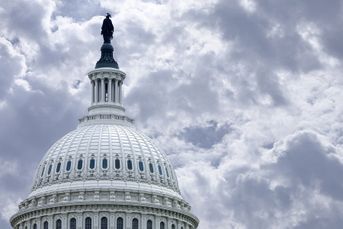DOL’s fiduciary exemption is not a workable option for advisers
Too complex and cumbersome, provision would exclude investments such as alternatives from list of options.
Despite months of media attention and frequent discussion within our industry, many financial advisers are only beginning to grasp the implications of the Labor Department’s effort to expand its definition of fiduciary under ERISA. The rule, as written, will deny millions of small and mid-sized investors access to quality, affordable retirement advice.
Much has been written about the DOL proposal’s Best Interest Contract Exemption, or “BICE,” which in theory presents a path for advisers to recommend a limited slate of investment options to IRA investors outside of a fee-based compensation structure. In practice, the BICE is too complex and burdensome to provide a workable option for advisers who seek to continue serving clients on a commission basis, but the only current alternative — banning all product sales based on commissions, revenue sharing or other forms of compensation altogether — would be much worse.
(More: The three biggest fiduciary stories of 2015)
Unfortunately, the DOL’s current proposal includes only basic investment vehicles such as Treasuries, CDs and exchange-traded funds on the list of assets eligible for the BICE. A wide range of other products, including alternative investments and income-generating assets that have become key elements of many retirement investors’ financial plans, were left off the list — effectively outlawing these products from retirement accounts.
NO CLEAR RATIONALE
With no clear rationale as to why these products were excluded from the BICE, it appears the DOL has determined that the excluded investments would never, under any circumstances, be in the best interest of any retirement investor. This conclusion overlooks the role many of these investment vehicles play in allowing clients to diversify their holdings and reduce overall portfolio risk.
It also unnecessarily ties financial advisers’ hands. These professionals, who work with clients every day to help them pursue their financial dreams, are in the best position to understand their unique retirement savings needs and recommend the best investments in the context of those needs. As currently written, the BICE would limit a financial adviser’s ability to make recommendations that reflect their clients’ goals, risks and unique circumstances.
Clearly, the DOL’s proposed rule poses real and significant problems for advisers and their Main Street clients. And we’re not the only ones who think so.
Earlier this month, a bipartisan group of representatives in Congress proposed a succinct list of core principles to act as a guide for future legislative efforts around establishing a fiduciary standard for retirement advice. The group, consisting of Reps. Peter Roskam (R-Ill.), Richard Neal (D-Mass.), Phil Roe (R-Tenn.), and Michelle Lujan Grisham (D-N.M.), plans to introduce legislation based on these principles, including these powerful, common-sense observations:
• Investor choice and consumer access to all investment services such as commission-based sales and guaranteed lifetime income should be preserved in a way that does not pick winners and losers.
• Public policy must protect access to investment advice and education for low- and middle-income workers and retirees.
• Public policy should never deny individuals the financial information they need to make informed decisions.
These simple statements reflect an understanding of one key facet of financial planning that every adviser knows: decisions on investment products are best made after careful consideration and discussion between investors and the qualified, professional financial advisers who understand their goals.
UNIFORM FIDUCIARY STANDARD NEEDED
To be successful, we need a uniform fiduciary standard — something FSI has been calling for since before Dodd-Frank — to achieve the goal of investor protection while preserving clients’ ability to receive qualified advice that can help them pursue their financial objectives.
The Labor Department and the administration appear set on implementing the DOL’s expanded fiduciary standard in some form, despite significant misgivings on the part of our industry and many members of Congress. A bill sponsored by Rep. Ann Wagner, R-Mo., which would have halted the DOL’s rulemaking on this issue until the Securities and Exchange Commission proposed its own uniform fiduciary standard, passed the House of Representatives last month, but President Obama has promised to veto it.
Despite these headwinds, our industry can still influence the shape of the final rule through continued dialogue with the DOL. There also may be opportunities to mitigate the rule’s potential damage through future legislative solutions.
Dale Brown is president and chief executive of the Financial Services Institute Inc.
Learn more about reprints and licensing for this article.







